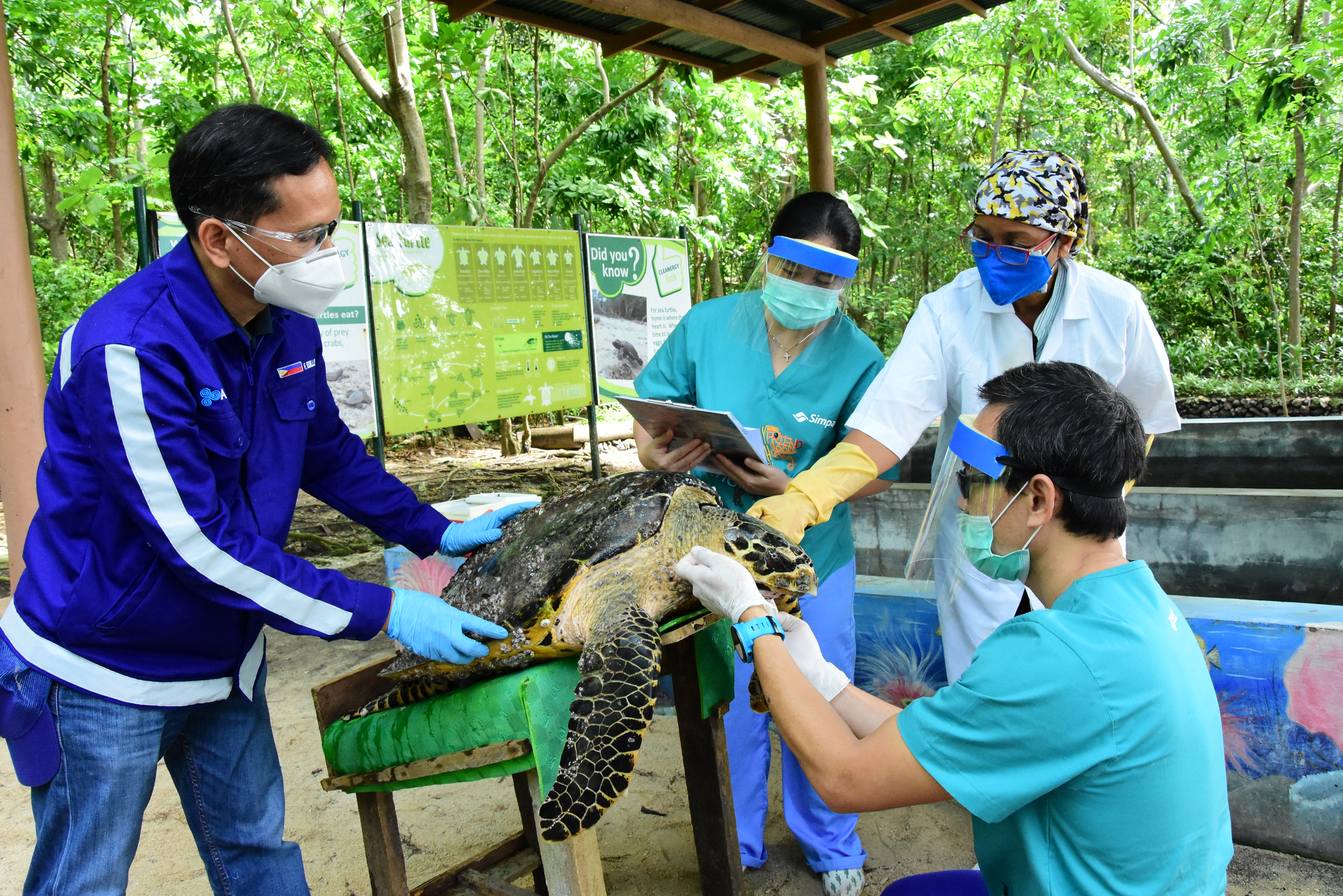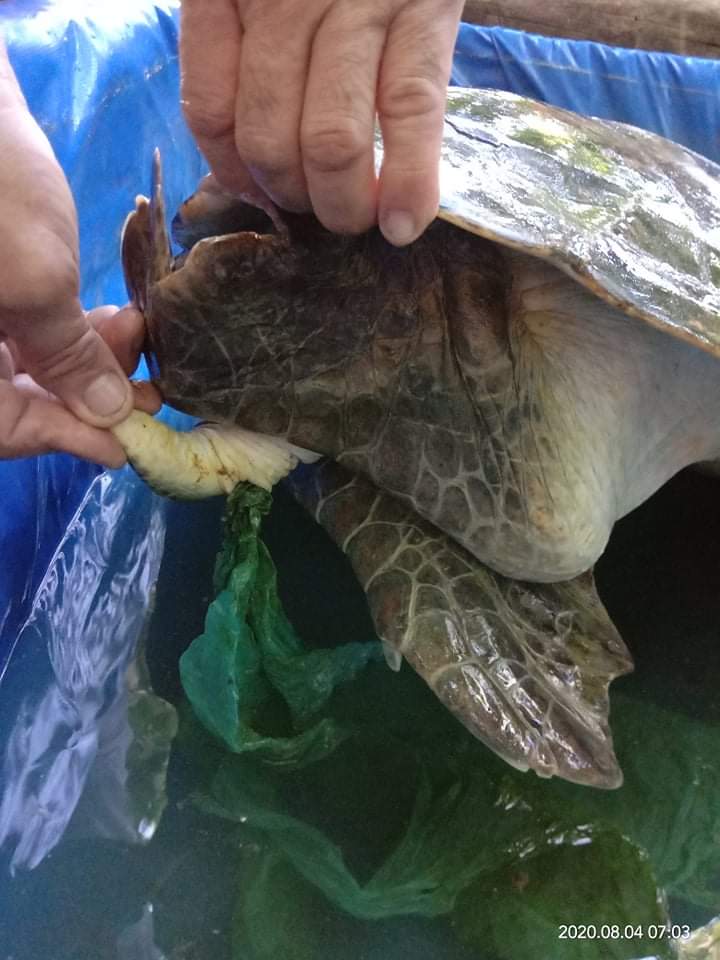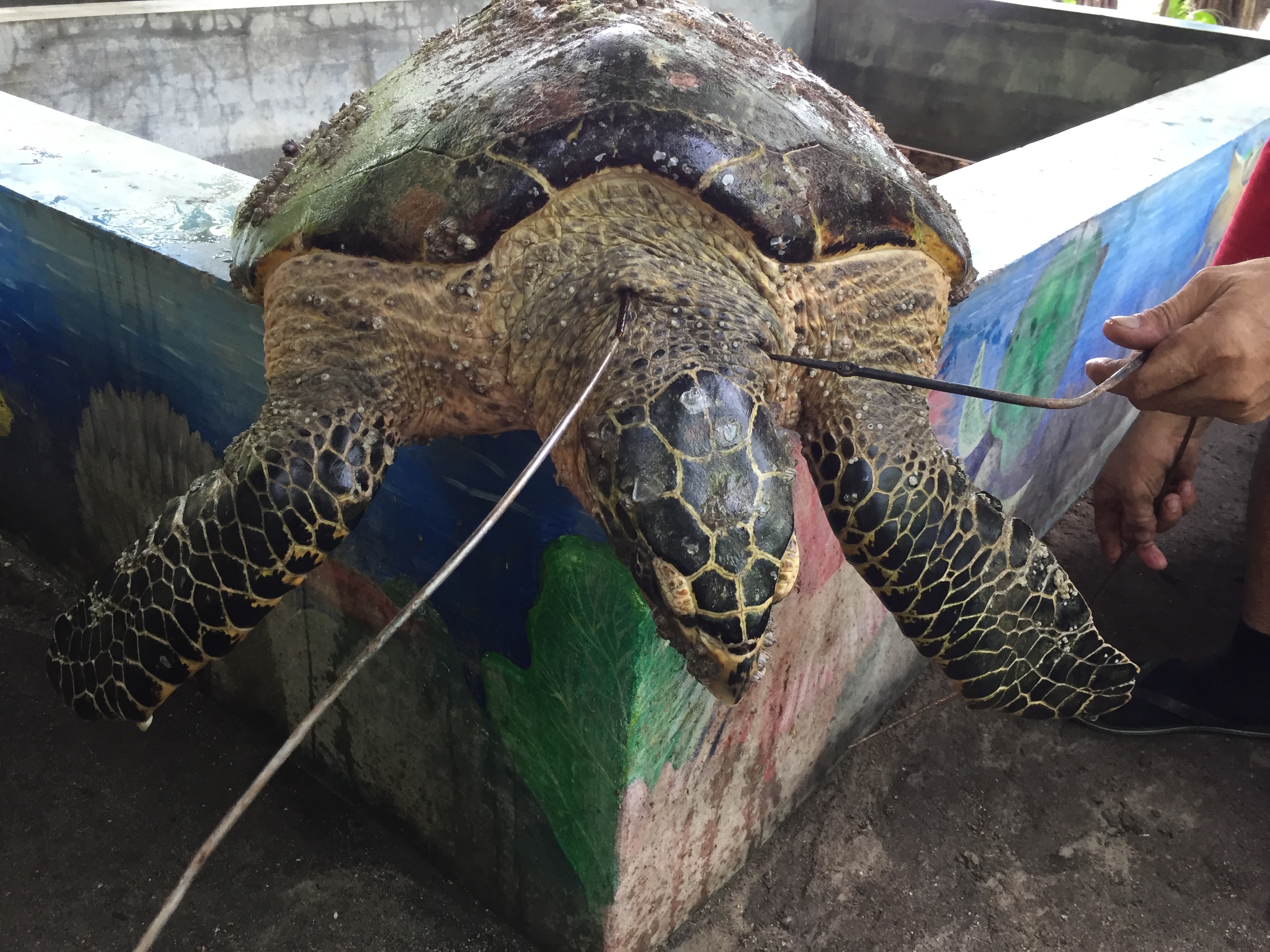Toxic Reality... A Pawikan Story

home to them, that does not appear to be the case lately. Not all coasts of the country are as beautiful as what they seem in photos and narratives. Some, if not most of our seas, are rather gray and topped with colorful plastic rubbish. And no other species could produce them other than humans- and this is not a new issue.
Rubbish comes in different sizes and shapes- all out in the open ready to be consumed by any marine species. Most narratives expose how sea turtles are found to have consumed plastic. These are not just rubbish but also toxic substances which may lead to their extinction- and we don't want that.

Thankful enough for the partnership of Davao Light, Aboitiz Foundation, DENR XI and the LGU of Davao City for its pawikan conservation project designating the Aboitiz Cleanergy Park as a Pawikan Rescue Center in Davao City. The park receives turtles turned over by DENR and the community and it provides assessment, care and treatment before the turtles are released back to the ocean. The site is a nesting ground for pawikans and the center guards their eggs so that hatchlings can safely go to the sea. While anticipation also comes in guarding the pawikan's eggs, the Aboitiz Cleanergy Park currently takes care of six (6) pawikans. Beyond the current count of six, there had been several releases of pawikans who have recovered from different kinds of illnesses or injuries. Just recently, the park received two rescued pawikans from Punta Dumalag, Davao City and from Sta. Cruz, Davao del Sur where both turtles were named after the places they were found.
Turtle Dumalag, a female Hawksbill Sea Turtle, was turned over by fishermen with two 3-meter long spears pierced through her neck. Veterinary experts came in to aid the turtle prescribing antibiotics, vitamins and x-ray tests. Turtle Dumalag is still up for an additional x-ray test to properly assess the need to administer the removal of the spears.
Turtle Sta. Cruz, a female Green Sea Turtle, was scheduled for release last June 9, 2020, the same day of her turn over. However, when she was placed on the shore allowing her to crawl towards her home, she just stood still. When she was re-examined by our experts, she had no signs of injury, but her eyes were notably sunken which is a sign commonly associated with dehydration. Because of this, the turtle stays at the park for further tests and evaluation. Since Turtle Sta. Cruz's care, she has already released more than 10 pieces of different sizes of plastic wastes (plastic bags and plastic ropes) and is being observed if she continues to release more.

Efforts are being exerted to accommodate rescued sea turtles that need attention and continuously campaign for support to save and protect them. I could just imagine the numerous hatchlings and sea turtles that would be released back to the sea in the future- each of them hoping that they experience life as it is- at peace with all the factors in it.
